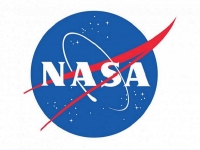Technology
NASA RENEWS 490 MILLION US DOLLARS CONTRACT WITH RUSSIAN SPACE AGENCY
NASA HAS TO RELY ON RUSSIA FOR SPACE

NASA (Source: NASA)
USPA NEWS -
NASA renews 490 million American Dollars with Russian's Space Agency. Charles BOLDEN, NASA administrator wrote to the Congress saying it was because continued reductions to the Agency's budget. Congress has cut about One Billion US Dollars from Barack OBAMA's request for a Commercial Crew...
NASA ended its Space Shuttle program in 2011 after a review and amid a shift in priorities to exploring deep space, which also included sending astronauts to Mars. As a result, NASA crew members rely on being transported by the Russian Soyuz spacecraft, which costs about 70 million US Dollars a seat. The agency typically purchases six seats a year (reported CNN). NASA has invested about 1.4 billion US Dollars in contracts and special agreements with private companies.
In 2008, US Senator Bill NELSON said he fears Russian's aggressive action against Georgia may have some serious consequences on the American space program, it could hurt US chances of accessing the International Space Station once NASA retires the space shuttles in 2010. The Russian Soyuz vehicule will be the only option available for NASA to send crew and cargo to the space station until the shuttle's replacement become available for manned missions in 2015.
NASA has a large presence in the Moscow area, with officies at the US Embassy, Star City, the Mission Control Center-Moscow, and the Russian Federal Space Agency (Roscosmos). Most of NASA's cooperation with RUSSIA is conducted throught Roscosmos. NASA and RUSSIA have a long history of extensive and diverse cooperation, starting with space biology and medecine, geodesy and geodynamics in the 1960s... Cooperation on human space operations began with the Apollo-Soyuz Test Project in the 1970s. Some of the current projects now focus on the use of Russian instrument on NASA robotic probes to the Moon and Mars, research on Russian bioscience spacecraft, and the continued success of the International Space Station (ISS). (moscow.usembassy.gov)
Ruby Bird Space Contract Russia United States Roscosmos Nasa Charles Bolden Astronaut Cosmonaut Iss Congres Funding
Liability for this article lies with the author, who also holds the copyright. Editorial content from USPA may be quoted on other websites as long as the quote comprises no more than 5% of the entire text, is marked as such and the source is named (via hyperlink).






